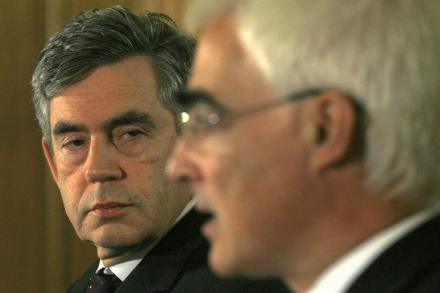The day the fiscal rules died
So today’s the day; the day Alistair Darling will confirm that Brown’s current fiscal rules are to be scrapped. Now, the rules have always been more of a fiddle than a useful economic tool – to meet the “golden rule” that the budget remains balanced over the course of the economic cycle, Brown blithely changed his definition of the economic cycle; and his use of off-balance sheet trickery to meet the “sustainable investment rule” is well-documented. But the worry is that if those fiscal rules failed to constrain Brown, what will he be able to achieve – what debt will he be able to accrue – under a more “flexible”












